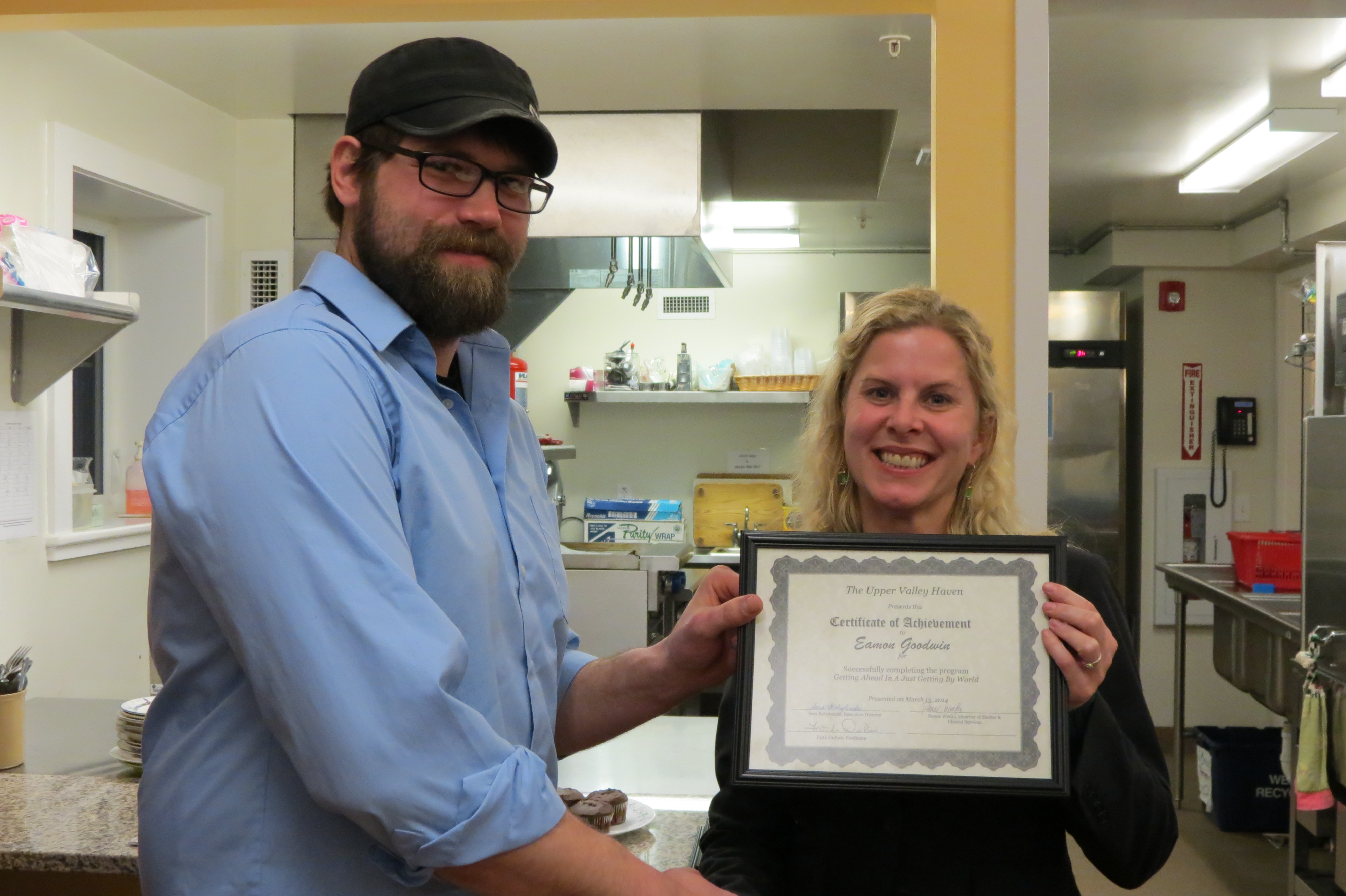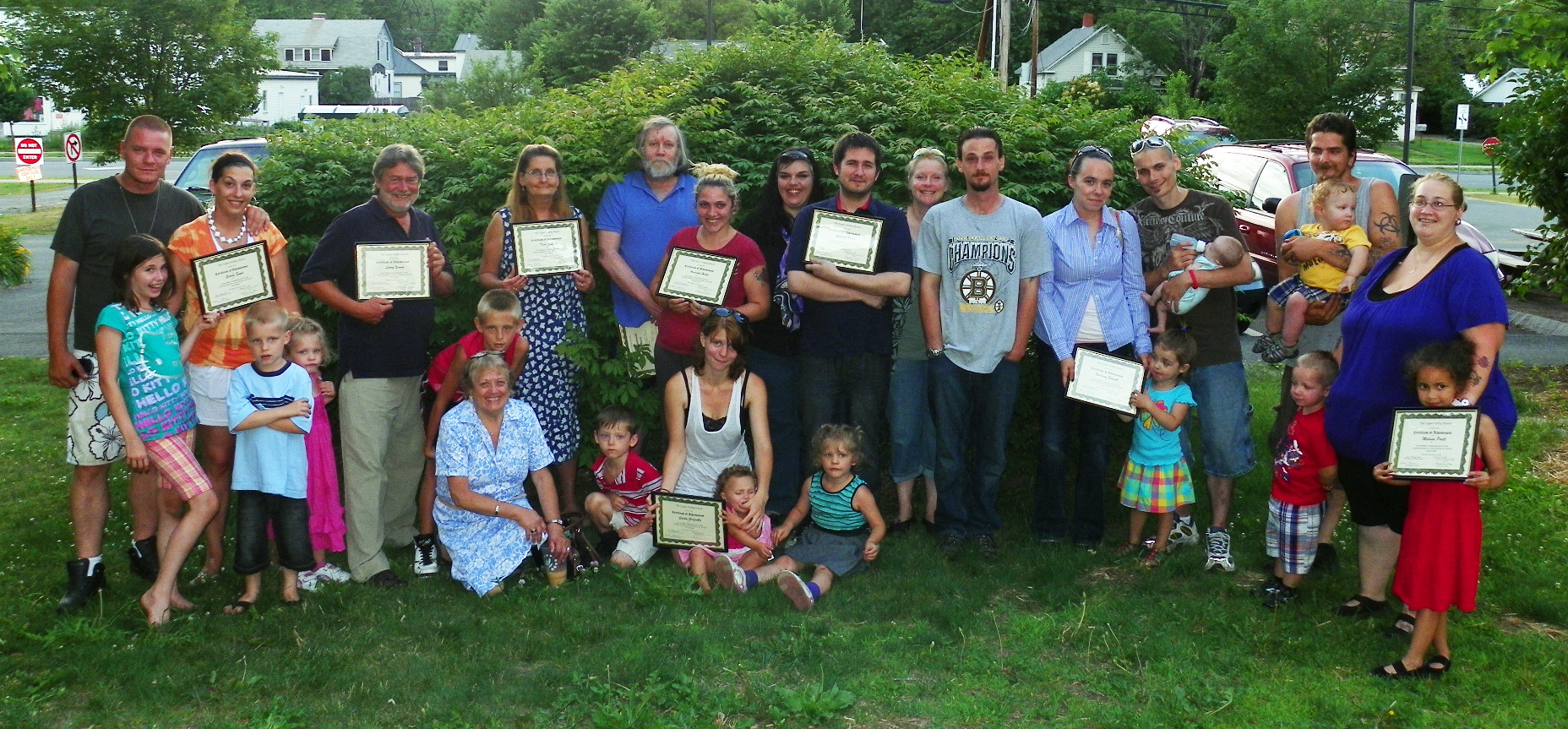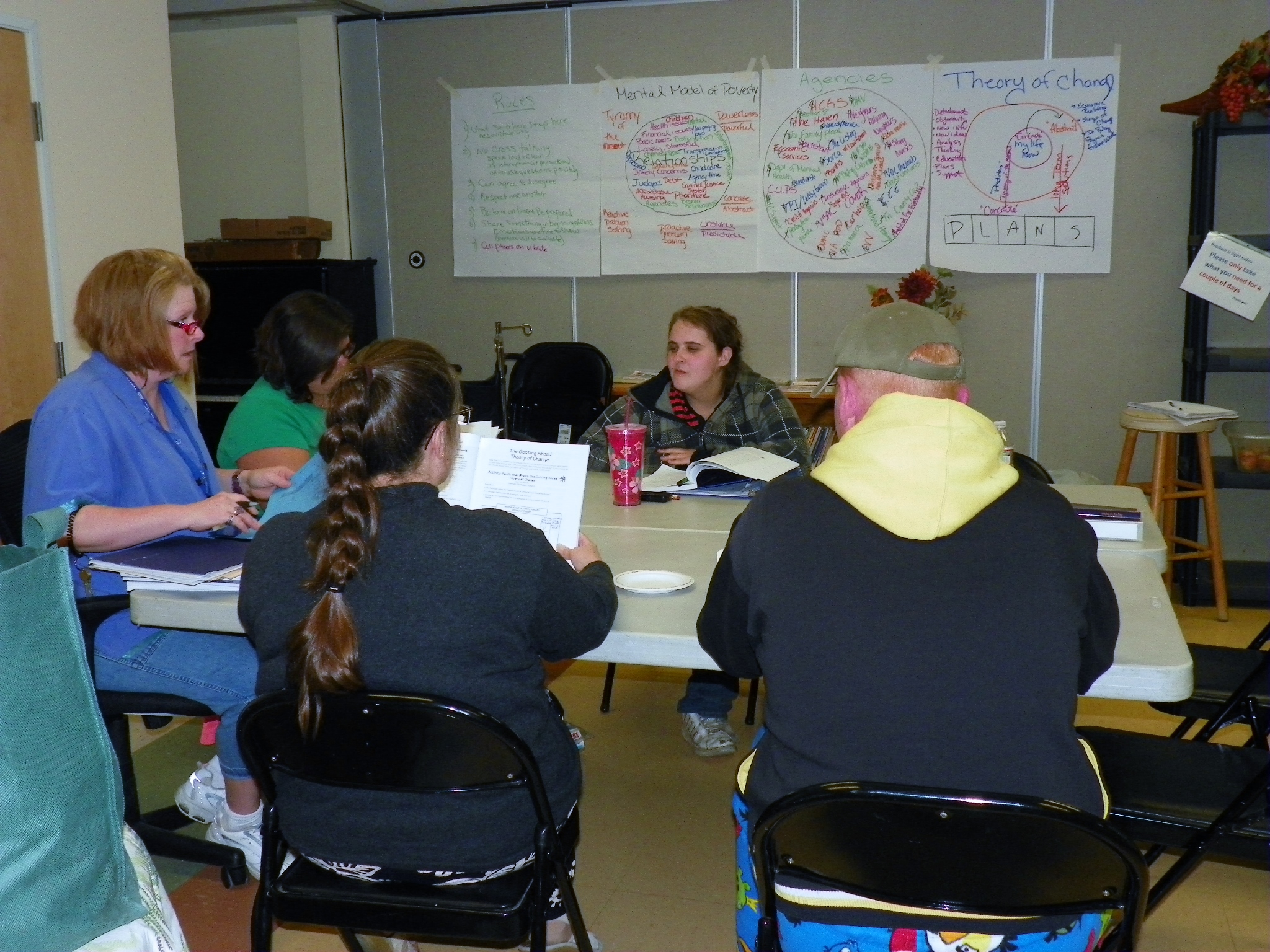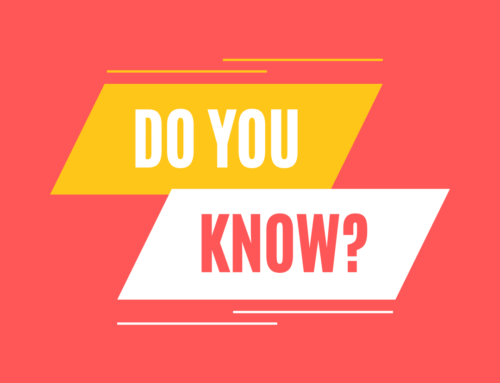 In this blog entry, Renee Weeks, Director of Shelter & Clinical Services at Upper Valley Haven (VT), shares detailed results of her organization’s Bridges and Getting Ahead initiatives circa May 2014.
In this blog entry, Renee Weeks, Director of Shelter & Clinical Services at Upper Valley Haven (VT), shares detailed results of her organization’s Bridges and Getting Ahead initiatives circa May 2014.
The Upper Valley community straddles the Connecticut River in northern New England, encompassing approximately 45 small towns in Vermont and New Hampshire. The geography is beautiful, although imbued with the challenges of a rural region. The population is aging, highlighting the socioeconomic dissonance between resettled retired people with considerable wealth and a more indigenous population that depends on Medicare and Social Security. Younger people are either highly educated and employed at Dartmouth College, its tertiary care medical center and affiliated clinics, and in high tech companies spawned by Dartmouth; or they are part of the seasonal service and tourist economy, working in hotels, restaurants, retail establishments and property maintenance, frequently without benefits or job security, or in low wage support jobs in the college and medical center.
The Upper Valley Haven serves individuals struggling financially to provide for themselves and their families. The Haven’s food shelf serves over 1,200 families per month with a week’s worth of groceries. The clothing room offers free clothes; the community case management service provides immediate solutions and referrals for longer-term help to 5000 individuals per year. The shelters provide 21 beds for adults without children, and rooms for eight families, and an overnight warming shelter has been added this past winter. In relation to the family shelter, the Haven includes a comprehensive children’s program whose capstone is an after school and enrichment program open to children currently or ever in the shelter. The total Haven staff includes 19 full time and 14 part time employees, and a corps of over 600 volunteers provides the 160 people per week that are necessary to keep the services functioning smoothly.
As an organization, the Haven is continually looking for ways to best serve our community and population. We strive to provide the services that are meaningful and helpful to guests and visitors. Our vision is to create a community where people will find hope and discover possibility. Our core principles are to:
- Welcome all who enter our doors as equals, respect their dignity and accept them without judgment
- Encourage those we serve to develop their capacity for independence and self sufficiency
- Seek support and participation from the community
- Be thrifty with our resources, generous in our hospitality and accountable to the individuals and organizations that support us.
While our shelters are an emergency resource, they operate on a program model, with those who come expected to participate in efforts for growth and change. Rather than having pages of rules, we require guests to consider four principles when making decisions or taking action: Respect, Communication, Safety, and Health/Cleanliness. The program includes a bed, meals, case management, work practice program, on site physical and mental health screenings, various educational programs, and a multitude of enrichment opportunities. All guests take on chores to operate the facility. The two primary goals of our programs are the achievement by each guest of a sustainable income source, and housing.
We are constantly reviewing what “programming” is most effective with our population. We noticed that some guests came into our program and were very motivated and successful, while others lacked engagement with the overall program and did not move forward. We began to think of our population in the “Stages of Change” framework, and trained staff on the concept. If people are pre-contemplative about taking the next step in their lives, we work on connecting to them and establishing a trusting relationship. If people are in the action stage of change, we focus on helping them identify resources in the community toward attainment of their goals. Our challenge has been with the people who are slow to get into the contemplative and preparation stages of change. Thus we asked, “What can we offer to guests to give them some additional tools to start developing goals and working towards them?”
Our state aha! Process trainer Prudence Pease introduced us to the Getting Ahead in a Just-Gettin’-By World curriculum. We offered on site and on-line facilitator trainings to staff and then piloted the curriculum with shelter guests in the summer of 2011. Pease co-facilitated the first group with a staff person. Since then, we have offered it six more times, twice a year, with staff facilitators. Our seventh session will add a Getting Ahead graduate as a co-facilitator. Funding for this program as well as our community presentations of Bridges Out of Poverty has been provided by the local Couch Family Foundation.
 To date, 82 people have begun the program and 48 have completed it. This program is voluntary, and we offer a $200 stipend to participants who successfully complete the program. We also provide free childcare to participants. In analyzing the attrition, we have found the two primary reasons for drop out to be employment that interfered with the time of class, and moving out of the shelter and away from the area. In exit interviews participants of the class talk about how much having mental models helps them to understand poverty, and how they have gotten to where they are at in their lives. They highlight learning about communication, and how that has increased their sense of self-esteem. They identify the SMART goals as one of the most helpful aspects of the program. In general they emphasize the importance of structure and a model that fits for them.
To date, 82 people have begun the program and 48 have completed it. This program is voluntary, and we offer a $200 stipend to participants who successfully complete the program. We also provide free childcare to participants. In analyzing the attrition, we have found the two primary reasons for drop out to be employment that interfered with the time of class, and moving out of the shelter and away from the area. In exit interviews participants of the class talk about how much having mental models helps them to understand poverty, and how they have gotten to where they are at in their lives. They highlight learning about communication, and how that has increased their sense of self-esteem. They identify the SMART goals as one of the most helpful aspects of the program. In general they emphasize the importance of structure and a model that fits for them.
In March of 2012, Dr. Matissa Hollister and her Introduction to Sociology Class at Dartmouth College did a qualitative analysis of our Getting Ahead Program. They interviewed a sample of 21 former guests who had participated in the program at some level. They found that participants of the Program found the SMART goals one of the most useful components of the program. Participants stated that other useful aspects of the program were the skill of and rapport with the facilitators and a small group size. One recommendation that came out of the interviews was to have an ongoing support group. People felt it would be useful to them to meet bi-weekly with other Getting Ahead graduates to share progress on goals and resources to help each other.
Graduates of the program report a 58% change in thinking. They are 99% certain they will use the plans made in Getting Ahead to inform their future decision-making. Most participants move from Contemplation and Preparation Stages of Change to the Action Stage of Change by the end of the program. Out of the 48 graduates, 36 have attained housing and a sustainable source of income, 6 continue to struggle with both housing and income, 2 have no income but have housing, and 2 are working and still living at the shelter. Another interesting trend we noticed was that 21% of Getting Ahead graduates come back to the Upper Valley Haven to volunteer, while only 1% of shelter guests who do not participate in the program come back to the Haven to volunteer.
In November 2013 we were ready for our facilitator to initiate a “follow along” time, fueled by the continuing request for post-curriculum support. The people that gathered named the group Forward Bound. Currently there are five Getting Ahead graduates that attend the group on a regular basis, and others are welcome as they are interested. The Forward Bound group has provided a venue for Getting Ahead graduates to share resources, and provide support to each other as they work on their SMART goals.
The Upper Valley Haven has secured an additional year of funding from the Couch Family Foundation to continue to disseminate knowledge about class and poverty throughout the community. The Upper Valley Haven is in the process of offering Getting Ahead In A Just Getting’ By World to local community members who come for services at the Haven, in addition to our guests at the shelter. We will be expanding to hold groups at other locations in the community; in particular we have been asked by our local substance abuse recovery center to offer sessions at their location. We are interested in discovering whether the principles of the curriculum will be as meaningful to other populations as people move along in the continuum of change, finding their own potential to move ahead in their lives. We are committed to offering the program to as much of our community as possible, and continuing to evaluate the effectiveness of the program.
The value of Getting Ahead does seem to be enhanced by placing it in a community context where presentations on Bridges Out of Poverty have been occurring for the past five years. To date, other human services organizations and the medical community, through a partnership with the Boyle Pediatrics Foundation at Dartmouth Hitchcock Medical Center and Physicians for Human Rights, primarily comprising students and faculty from Geisel School of Medicine at Dartmouth, have been the most frequent audience. Our target groups this year are public school personnel and employers in the region. Our goal is to help teachers and employers understand the mental models of class so they can be more successful in their work with people living in poverty. Expansion into a Working Bridges model may be possible. We anticipate that with the passage of time both Bridges Out of Poverty and Getting Ahead will be more strongly embedded in the fabric of the community.
Renee Weeks
Director of Shelter & Clinical Services
Upper Valley Haven










